Ghetto at the Center of the World: Chungking Mansions, Hong Kong, by Gordon Matthews, Professor of Anthropology at The Chinese University of Hong Kong (available on Amazon USA and UK.)
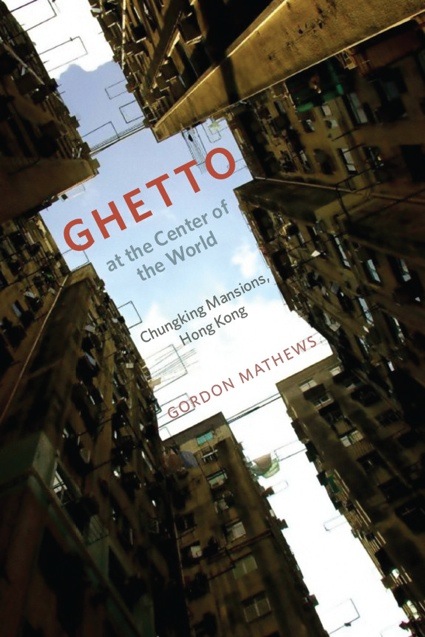
Publisher The University of Chicago Press Books writes: There is nowhere else in the world quite like Chungking Mansions, a dilapidated seventeen-story commercial and residential structure in the heart of Hong Kong’s tourist district. A remarkably motley group of people call the building home; Pakistani phone stall operators, Chinese guesthouse workers, Nepalese heroin addicts, Indonesian sex workers, and traders and asylum seekers from all over Asia and Africa live and work there–even backpacking tourists rent rooms. In short, it is possibly the most globalized spot on the planet.
But as Ghetto at the Center of the World shows us, a trip to Chungking Mansions reveals a far less glamorous side of globalization. A world away from the gleaming headquarters of multinational corporations, Chungking Mansions is emblematic of the way globalization actually works for most of the world’s people.
(…)
Gordon Mathews’s compendium of riveting stories enthralls and instructs in equal measure, making Ghetto at the Center of the World not just a fascinating tour of a singular place but also a peek into the future of life on our shrinking planet.
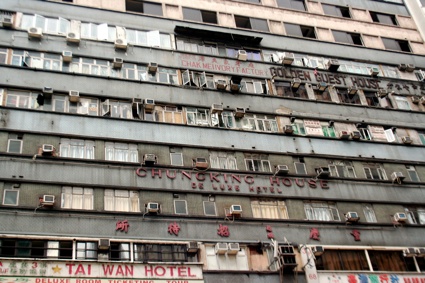 Image by Gerald Figal
Image by Gerald Figal
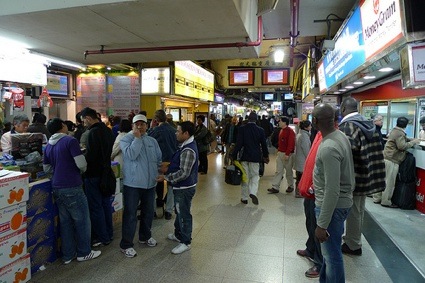 The mall in the ground floor of Chungking Mansion. Photo by bricoleurbanism
The mall in the ground floor of Chungking Mansion. Photo by bricoleurbanism
Chungking Mansions inspired Wong Kar Wai’s Chunking Express movie. It is also where my literary idol of the moment, Harry Hole, is found smoking opium at the beginning of The Leopard. Chungking Mansions is a derelict 17 storeys high building located in one of the busiest areas of Hong Kong. It offers dirt cheap accommodation for tourists and traders, shops selling clothes, souvenirs or small electronics (copies and originals), curry restaurants, foreign exchange offices and other services. Mathews calls it “an island of otherness in Hong Kong.” A place that Chinese people find to seedy to enter, where the lingua franca is english and an informal gathering place for ethnic minorities in Hong Kong, particularly South Asians and Africans in search of a better (or rather richer) life.
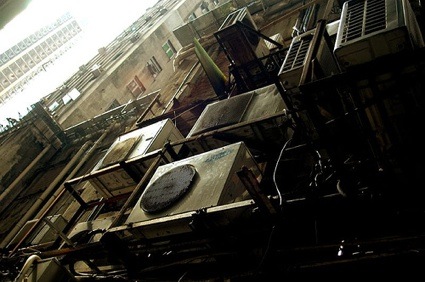 Photo by Shin K
Photo by Shin K
The book gives a perspective on globalization i had never heard about before. Not only because it talks about globalization from an anthropologist’s point of view but also because it focuses on what Matthews calls “low-end globalisation” of which Chungking Mansions is a central node. The protagonists of low-end globalisation are relatively small fry compared to the corporations we usually associate with the word ‘globalization.’ They are traders coming from Sub-Sahara African countries who carry in their suitcases the goods they buy from Chinese manufacturers (the author calculated that a trader can fit 250 to 300 mobile phone within an airline baggage allowance), hoping to make a big profit from it back in their home country, once they have paid the necessary taxes and bribes at customs. Or they are young people from Kidderpore in Kolkota who land in Hong Kong because the ticket fare to the city is cheaper than any other destination where they could find work. They arrive with sari and basmati rice in their suitcase, stay on extended tourist visa, work for pitiful wages in a curry house and go back home with clothes to sell in their neighbourhood. In Hong Kong, these traders and illegal workers struggle to buy a Cup Noodle at the nearest 7-Eleven. Back in their home country, they are regarded as successful members of the middle-class or upper-class.
In “low-end globalisation”, people still use cash and favour face-to-face business.
Whether they are traders, shop owners, asylum seekers, prostitutes, or temporary workers, these people end up in Chungking Mansions because it offers cheap accommodation, because it is located in a city-state that doesn’t have strict visa rules and because Hong Kong is a gateway towards Southern China where mobile phones and textiles are manufactured at low prices.
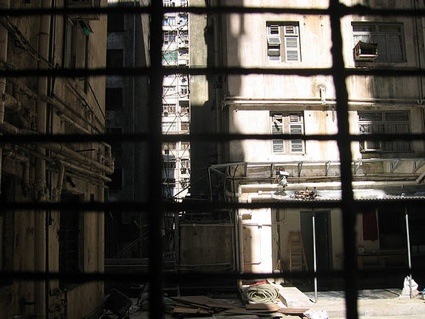 Photo by Alasdair Pettinger
Photo by Alasdair Pettinger
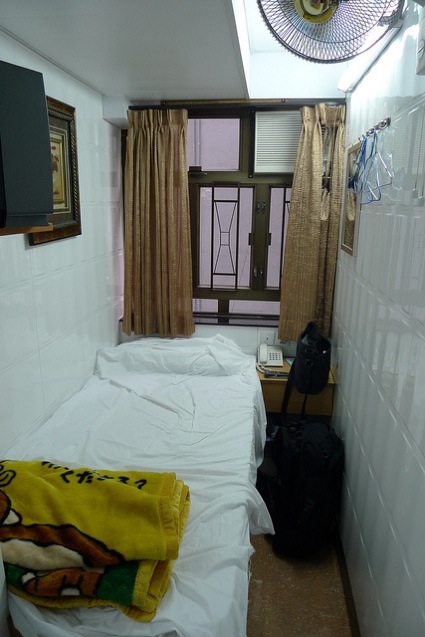 Room at Germany Hostel in Chungking Mansion. Photo by bricoleurbanism
Room at Germany Hostel in Chungking Mansion. Photo by bricoleurbanism
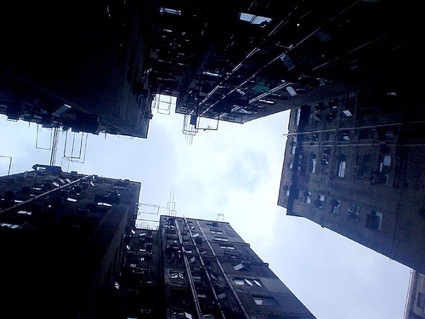 Photo by Shin K
Photo by Shin K
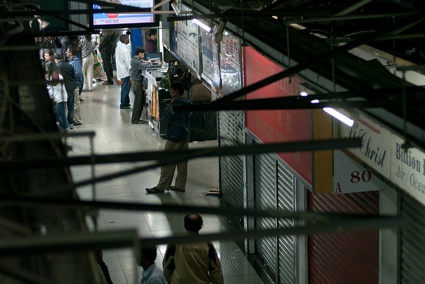 Photo by Lucy Lou
Photo by Lucy Lou
Matthews explores the building through its history and location, the groups of people living there, the goods that pass through it, the laws that govern (with much laxity) the transactions taking place in the building. The final chapter speculates on the future of Chungking Mansions.
Matthews’s passion for Chungking Mansions and the people that inhabit it is contagious. I read the book from cover to cover over the weekend. His writing is clear, entertaining, and it never verges on the intimidatingly academic. The personal stories collected from the traders, shopkeepers, asylum-seekers and other people who pass through the building make the book even more engaging.
Berfrois has an excerpt of the book. And Foreign Policy has a photo set of CM.
Photo on the homepage by Shin-K.
